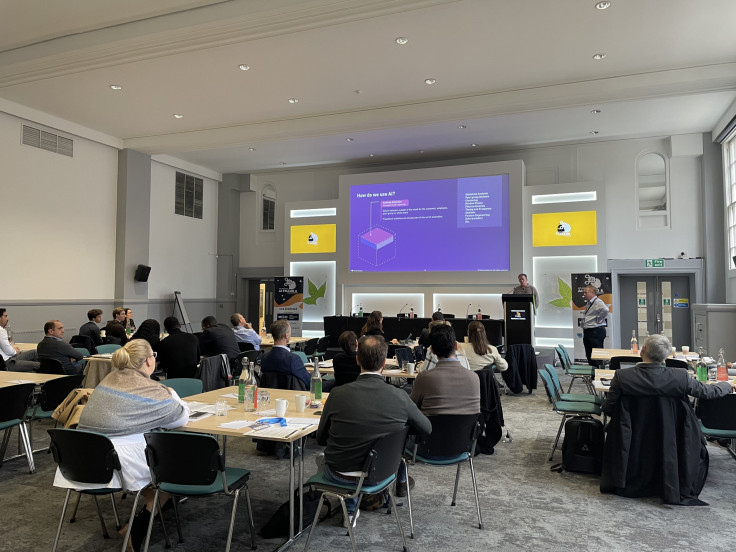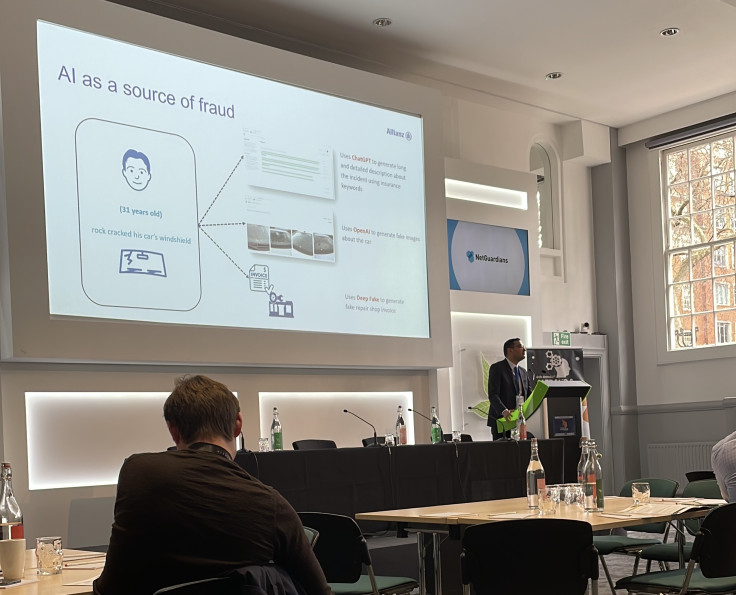The 'rate of fraud is exploding' and AI has a crucial part to play
With Samsung banning AI tools like ChatGPT and the "rate of fraud is exploding", experts in the tech sector have mixed feelings about the growth of artificial intelligence.

It might come as a surprise to most, but artificial intelligence has been part of our daily lives for years. Now, because of popular AI-powered tools like ChatGPT, the technology is in every dinner conversation across the globe.
This year we have seen the growing fear of AI from every industry – specifically the tech sector. Prominent figures like Elon Musk have openly spoken about the dangers that AI technology poses if not used mindfully and regulated correctly. On the other side of the spectrum, Bill Gates has suggested that artificially intelligent chatbots can replace human teachers.
With teachers going on strike in the UK, because of the rise in inflation affecting the value of their wages, it is understandable why many are against the development of this technology.
More recently, even, Samsung has banned the use of AI tools like ChatGPT over security concerns. If tech giants like Samsung are banning their employees from using generative AI tools like ChatGPT, Bing AI and Google Bard, then maybe the general public has a reason to be worried.
Here at International Business Times UK, we wanted to find out more about the dangers of AI and why various industries, including the financial sector in particular, have a reason to be concerned and what the possible benefits are. So we attended the AI Fraud and AML Summit in London.
But what does AI fraud even mean? Whether it is generating very convincing fake or misleading websites, information, accounts or automating scams or other fraudulent activities, the concerns of the danger of artificial intelligence have been one that many have shared regardless of what industry they are coming from.
The AI Fraud and AML Summit is an annual event that brings together leading experts in artificial intelligence, fraud detection and anti-money laundering (AML) from around the world. The summit aims to provide insights and practical solutions to the challenges faced by organisations in detecting and preventing fraud and financial crimes using AI and machine learning technologies.
The event, if anything, was a unique opportunity for professionals in the financial and technology industries to network with peers and learn from some of the most knowledgeable experts in the field. In addition, the event provided attendees with a platform to exchange ideas and best practices, as well as to gain insights into the latest trends and innovations in the industry.
Given that the event covered a wide range of topics related to AI, fraud and AML, including the latest trends and innovations in AI and machine learning, regulatory compliance, risk management and data analytics, no wonder it took two days. It probably could've taken more too if there was time.
Furthermore, the summit featured keynote speeches, panel discussions and case studies presented by experts from a variety of industries.
One of the key themes of the summit is the use of AI and machine learning in fraud detection and prevention. The rise of digital banking and financial services has created new opportunities for fraudsters to exploit vulnerabilities in the system, and organisations are turning to AI and machine learning technologies to help detect and prevent fraud in real time.

During the event, the guest speakers expressed the negative effect AI has on their various industries. However, there are benefits artificial intelligence provides in improving the way businesses function.
Speaking to Sylvester Mbeah, Sanctions & Financial Crime, Munich Re, we asked him about any issue that businesses in the insurance industry are facing and how AI could be used to tackle the problem. He said: "Currently there are a lot of legacy systems and self-traditional insurance, where people are using old systems that are not merged into one.
"Where we can bridge the gap where we are using the one system that could pretty much hold all the information, that way the intelligence systems can come in and do the work, ie., the AI systems and AI models. I think that is the only way that traditional insurance would progress into catching up with the newer Insurtechs."
Regardless of the technology's benefits, AI fraud is still prevalent and we should be mindful of it.
Roy Belchamber, Head of Product Management at NetGuardians, believes the "rate of fraud is exploding" and the "types of fraud are exploding, particularly with authorised push payment frauds" – which has been a cause for alarm for banks. He further expressed how "implicitly where there are instant payments, we tend to see that there's instant fraud as well."
When asked what advice he might have for any fraud protection technique, Roy said: "We've got an approach at the NetGuardians which blends unsupervised and supervised active learning, in order to be able to identify fraud within your genuine transactions to be able to block those [ungeniune payment], protect your customers, and at the same time not block too many genuine payments within the bank and ruin the customer journey, almost, on those genuine payments."
Oliver Maspfuhl, one of the guest speakers from Deutsche Bank, working in anti-financial crime modelling, shared his thoughts with us about artificial intelligence, fraud and how the two are evolving. He believes the application of AI techniques to AML is "very exciting" and that the AML domain is "very special".
Oliver went on to say: "We don't have the data we need to train traditional machine learning models. We also don't have the infrastructure we need, typically, and we have strong constraints, by the regulation. So making AI operational, in this domain, is very challenging and very interesting, but it's also very promising because it can solve lots of the problems we have in AML."
The anti-financial crime modelling expert also feels AI can help with entity management and it is "crucially important to merge the entities together" because the technology can simplify "spotting complex annual lease in complicated networks can be achieved using AI and machine learning."
Whether you are in support of it or against it, AI is not going anywhere. The British government recently announced a £100 million investment of start-up funding into a Foundation Taskforce Model, or as they termed it a new "expert taskforce", in hopes that this can help shape the future of AI development in the UK.
It is safe to say, just like any developing technology, artificial intelligence comes with its pros and cons. Time will tell how well the government, banks and Big Tech can regulate and keep AI safe to use as we continue to see more of it in our everyday lives.
© Copyright IBTimes 2025. All rights reserved.






















